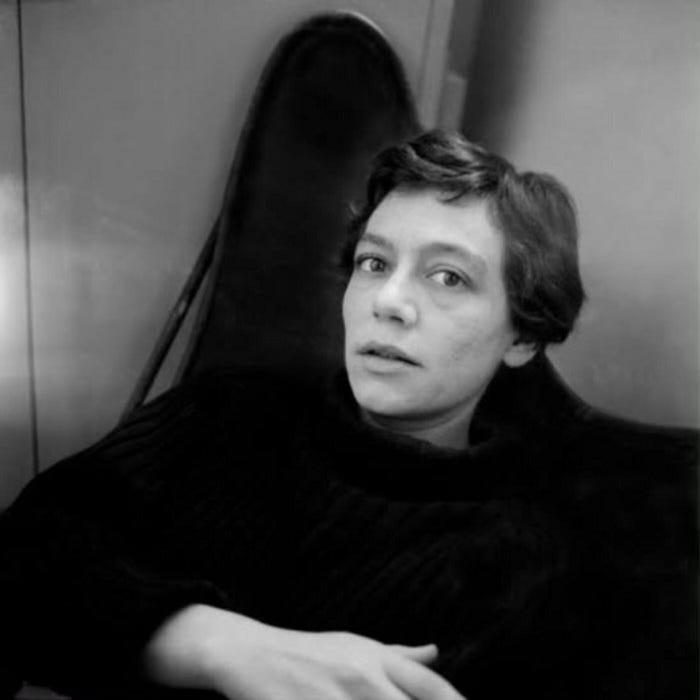We need a place where the impossible becomes possible. It is in the poem, particularly, where the limit of the possible is legitimately transgressed, put at risk.—Alejandra Pizarnik
Alejandra Pizarnik (1936–1972) was a major Argentine poet. She was born to Ukrainian-Jewish immigrants and studied painting and literature. Her poetry is stark, painful, vulnerable, and raw. Her short life was marked by her outsider status as a woman, a Jew, the daughter of an immigrant-refugee family, a bisexual, and a schizophrenic. Much of her work was clandestine and was circulated in secret during Argentina’s military dictatorship (1966–1983). Pizarnik killed herself by a deliberate overdose of sedatives when she was just 36.
Pizarnik’s poems are psychologically fraught, emotionally abraded, and spiritual piercing, yet they are always rooted in the body, or some part of the body. Mostly short portraits or jewel-like moments in a frame, her poems read as if all the pathos and mythology of Frida Kahlo could be married to the excoriating suffering and intensity of Sylvia Plath.
Keep reading with a 7-day free trial
Subscribe to The Sharpener to keep reading this post and get 7 days of free access to the full post archives.




